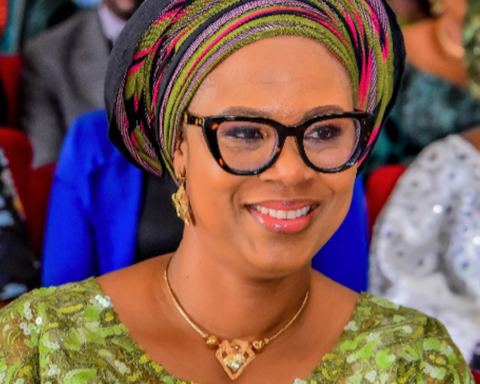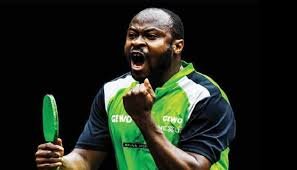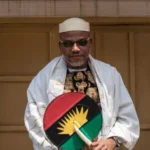FELIX OGUEJIOFOR ABUGU writes that Nigeria International Victor Osimhen’s move to Al Ahli FC in Saudi Pro League is most significant not only because of the hefty amount involved but also because it signposts merging shifts in the dynamics of world professional footballing.
Victor Osimhen is the latest of football biggies to move to conservative Muslim Saudi Arabia to ply his trade.
According to agency reports, Nigeria’s Osimhen actually shunned overtures from English Premiership’s Chelsea FC to move to the Saudi Pro League from his Serie A side Napoli.
In what seemed like an exchange, Chelsea’s move for Osimhen came after the English Premiership side sold its striker Remelu Lukaku to Serie A’s Napoli, Osimhen’s former Club which he had been expected to depart for the duration of this summer but had remained in Campania till the very last moment.
As a matter of fact, Chelsea and the Saudi Pro League had remained the only two transfer options open to the Edo-born Nigerian before the end of the transfer window this summer. And then he stunned Chelsea and opted to join the Saudis’ Al-Ahli Pro League club.
With an astounding £33.6 million (€40 million) per season or a princely £646,154 per week—completely tax-free, and considered as among the highest in world football, Osimhen would be counting his lucky dip in the Saudi move.
Indeed, he is today the highest paid African footballer, humbling the great Mohammed Salah, Sadio Mane and Riyad Mahrez who earn slightly above £500,000 a week.
But is this move all about the money? For young players, career development has always been prized above money. Hitherto, most players seemed to want to make a name for themselves playing in European leagues before relocating to the Middle East, Turkey or the United States to earn big money and from there retire from active football.
But the dynamics would appear to have changed. These days, a lot of younger but great players have joined the Saudi Pro League in droves, even when they have’t made all the name for themselves playing in the hitherto thought-to-be- more competitive European leagues. Apart from the great Cristiano Ronaldo who, though still active, can be classified as old for purposes of football, Sadio Mane, Talisca, Ngolo Kante, Riyad Mahrez, Nemar and Franck Kessie, among others, are some of younger players now playing for clubs in the Saudi Pro League.
At 25, Osimhen still has 5 to 7 years to play active football. It is instructive that he chose Al-Ahli over and above Chelsea, the popular and rich London side, which millions of his Nigerian fans call their club. While money may be an inspiration, analysts believe that Osimhen’s journey from Napoli to Al Ahli and other such transfers are “not just a transfer (but) represents a broader shift in the football landscape, where the Saudi Pro League is increasingly becoming a destination for top-tier talent,” as one commentator put it.
“The move,” he added, “also highlights the ever-changing dynamics between European clubs and the emerging football markets in the Middle East.”
Thanks largely to Cristiano Ronaldo, the world’s most charismatic and influential footballer, millions around the globe now watch Saudi Pro League and can tell that it’s not only awash with cash but also with talents whose footballing skills and competitive spirit, as in Europe, can also keep fans on their feet, shouting and rooting for more at the players’ every move.
What is happening in Saudi Arabia sports – football to be precise – speaks to the power of marketing and promotion. The huge noise, almost commotion, that followed Ronaldo to Saudi Arabia, was, to be sure, orchestrated. Ronaldo’s personal charm, incredible footballing and, by extension, global influence, coupled with a lot of PR work, riveted the soccer world to what is happening in Saudi Arabia. And, as they say in PR, it was only too easy to convince the world to look in because something new, really good and worth looking in for, was happening in Saudi Arabia because .
It also speaks to how a nation can take deliberate steps to develop more positive narratives about itself in order to engender mutually-respecting and beneficial relationships with the rest of the world. The Saudis are advertising their desert, oil-rich country as also liberal.
For, although Saudi Arabia had long opened its doors to medical doctors and similar professionals from across the world, very many of them non-Muslims, it was not until it followed it up with the arrival of the razzmatazz of football and entertainment at its doors that the world came to know that life isn’t all dour in the world’s headquarters of Islam.
With television franchises growing and more people from around the world wanting to watch Saudi Pro League matches, a time will come (and may well have come) when money and talents will combine in favour of the Saudis to take the shine off the more established leagues in the world. The desert princes certainly aren’t joking about their quest, even obsession, to stamp their imprimatur on world football.
In a very positive sense, the Victor Osimhens of this world are the very Saudi aces in this game of world football thrones. So, go, Victor, go, as a great, sweet history beckons.



























